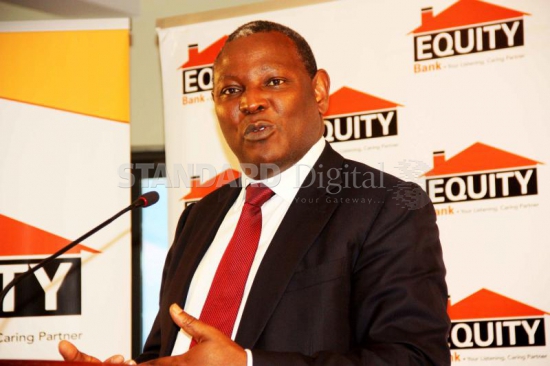×
The Standard e-Paper
Fearless, Trusted News

Equity has completed acquisition of ProCredit Bank of the Democratic Republic of Congo after receiving regulatory approval from Kenya and DRC.
Making the announcement, Equity Group CEO James Mwangi said the transaction to acquire 79 per cent stake of ProCredit Holding issued shares was complete. ProCredit is an SME focused bank in the DRC.